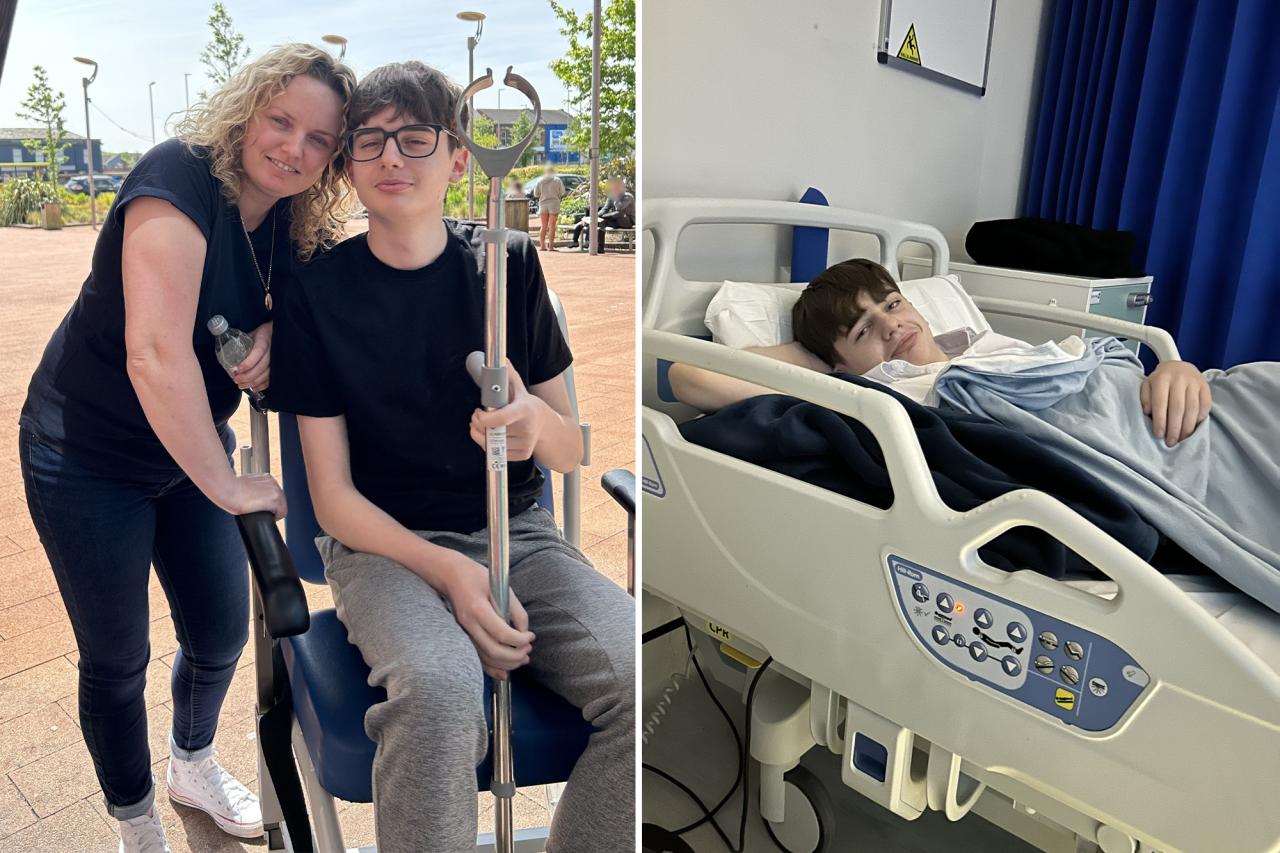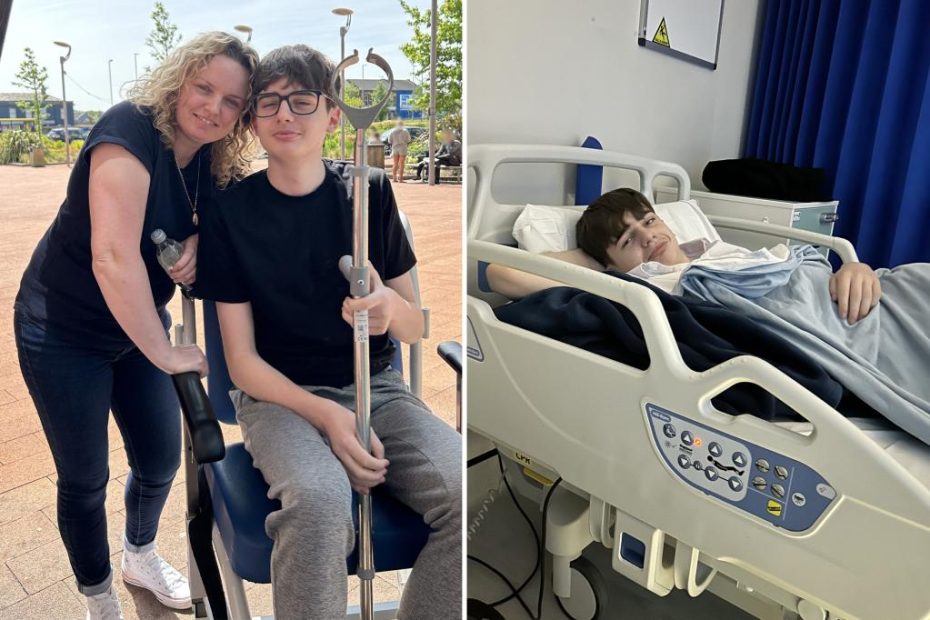I thought my gangly teen had a growth spurt — but it was a brain tumor
A mother from the UK discovered her son was suffering from a large brain tumor after initially blaming his clumsiness on his recent growth spurt. Samantha Halket, 39, believed her son, Thomas, 16, was simply going through the pangs of adolescence, as well as dealing with the fact that he had grown to nearly 6 feet in a short period of time. Halket reported last month that her son started complaining about frequent headaches as well as being tired and sick, but she assumed it was due to the stress of educational tests. The symptoms then progressed, and Thomas admitted he had been struggling to see distant objects but was afraid to say anything because he didn’t want to wear glasses. Thomas’ eyesight diminished so much he was forced to see an eye doctor who discovered the tumor. Thomas was checked into the Royal Stoke University Hospital where a doctor said Thomas was facing a grade one brain tumor or pilocytic astrocytoma. Physicians were able to remove the tumor just two days after the family checked in, and Thomas is almost back in perfect condition.
FAQs
What is pilocytic astrocytoma?
Pilocytic astrocytoma is a slow-growing type of brain tumor that begins in the glial cells, which are responsible for supporting and protecting the brain’s nerve cells.
What are the symptoms of pilocytic astrocytoma?
The symptoms of pilocytic astrocytoma can vary depending on the location, size, and rate of growth of the tumor. Common symptoms include headaches, dizziness, nausea, vomiting, seizures, vision problems, balance issues, and cognitive disabilities.
How is pilocytic astrocytoma treated?
The treatment for pilocytic astrocytoma depends on the location, size, and rate of growth of the tumor. Treatment may include surgery, radiation therapy, chemotherapy, or a combination of these treatments.
How can pilocytic astrocytoma be prevented?
Currently, there are no known preventive measures for pilocytic astrocytoma. However, it is important to maintain regular medical checkups and promptly report any symptoms to a healthcare professional. Regular eye exams are also recommended to detect any changes in vision.

My awkward teenage child appeared to have grown suddenly, but it turned out to be a tumor in the brain.
A British mother has spoken out about her teenage son’s battle with a brain tumour, which was initially put down to growing pains and clumsiness. Samantha Halket, 39, blamed Thomas, 16, for his increasing lack of coordination and stumbling, attributing it to a recent growth spurt. However, after he began suffering from frequent headaches, Halket took him to an optician where a massive tumour was discovered, which was blocking fluid to his brain. The 16-year-old was admitted to the Royal Stoke University Hospital where the tumour was successfully removed. Despite a difficult recovery, Thomas is now “almost back in perfect condition” and has high hopes for his future.
